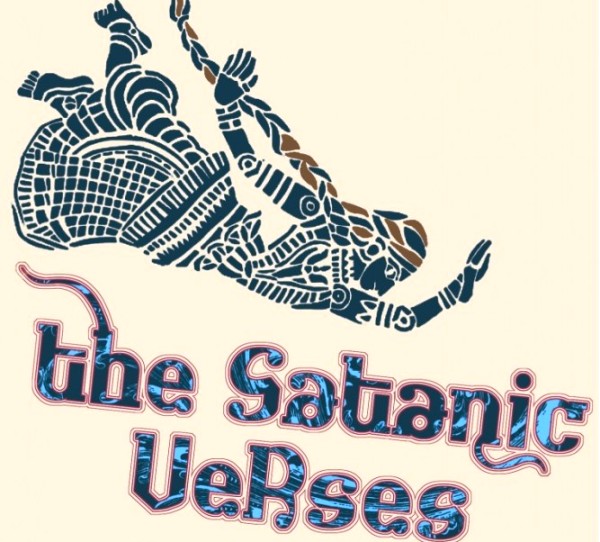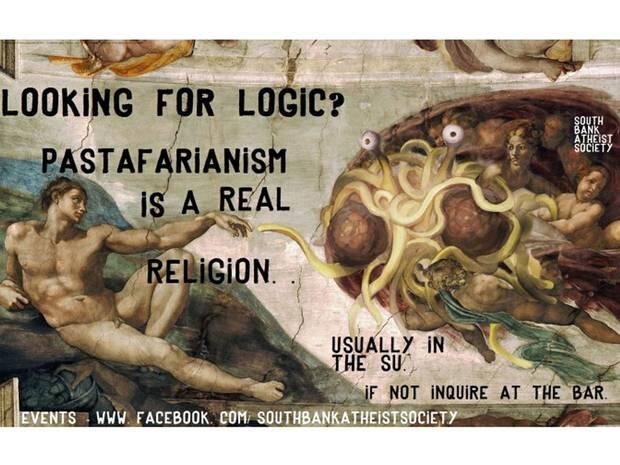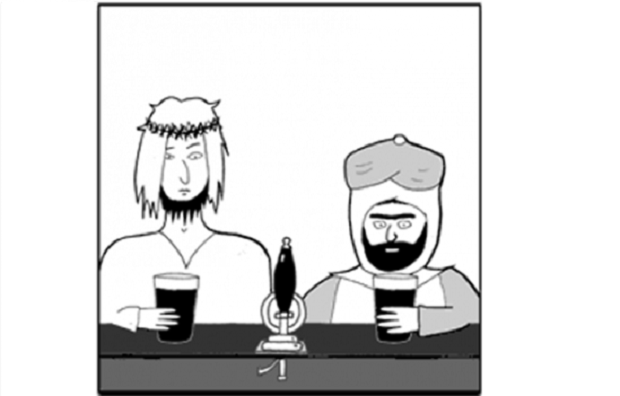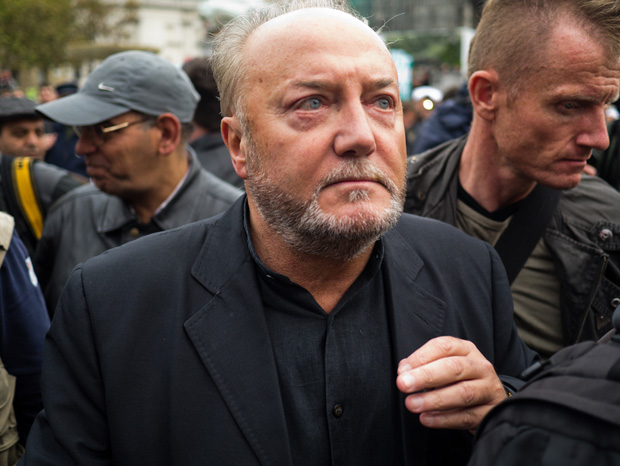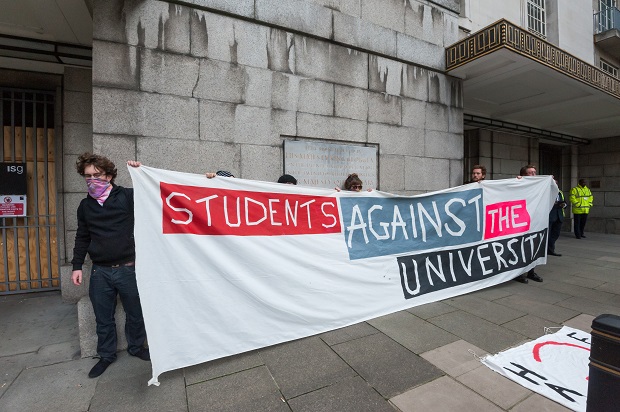Internet repression in Vietnam continues as 30-month prison sentence for blogger is upheld
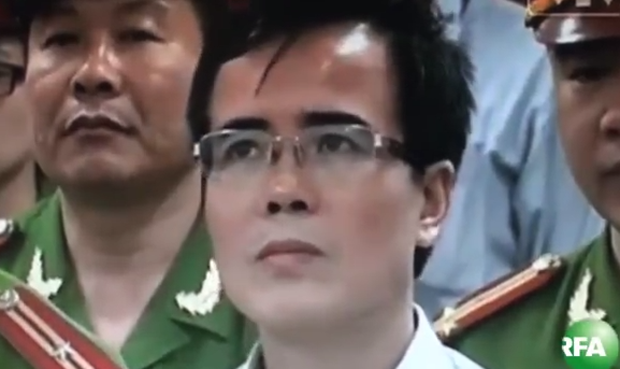
Le Quoc Quan (Image: RFAVietnamese/YouTube)
The 30 month prison sentence for Vietnamese human rights lawyer and blogger, Le Quoc Quan, was today upheld by a Hanoi appeals court. Quan, who has frequently blogged about human rights violations by the government, was convicted in October 2013 on tax evasion charges. He has been arbitrarily detained since December 2012. A crowd of hundreds wearing t-shirts in support of Quan were present outside the court, while a European Union delegation, representatives from the United States and Canada and a small group of journalists were present at the trial. This is just the latest move in the Vietnamese authorities’ ongoing attack on dissent, free speech, free press and a free internet.
If you need to communicate with someone the Vietnamese government is interested in keeping an eye, it is always been useful to be careful. Phone conversations can be listened to. Meetings at houses could be watched. Protests are invariably filmed by government operatives. If you were going to, say, chat via Gmail’s chat function it should be switched to “off the record” to prevent a copy of the discussion being archived. Some unlucky people have seen their blog posts traced to the internet cafe they’ve later been arrested at. If you are a dissident you won’t be the only one the police are interested in; they’ll talk to your family, friends and employers, too. The latter they may ask to dismiss you.
It is Vietnam Ministry of Public Security conducts this surveillance work, while the Ministry of Information and Culture drafts many of the laws regarding internet usage and “abuse”. And it is most likely a unit within the MPS that is responsible for these, and earlier, malware attacks.
Much of the surveillance and intimidation is hardly new; similar operations took place during the Terror in the USSR. In fact, the CIA has compared the MPS with Russia’s KGB. The KGB of comrade days, however, never had to deal with the vastness of the internet. The government owns every newspaper and printing press in the country, but it has few serious servers, making control of the internet difficult. It does not stop them from trying.
In January the Associated Press in Vietnam reported on malware attacks against one of its journalists, against an American-Vietnamese blogger and against the Electronic Frontier Foundation (EFF). These are certainly not the first of their kind but may have been the first directed against those on foreign shores. The private correspondence of Vietnamese-American blogger Ngoc Tu was posted on her blog after someone — supposed, but not verified to be the Vietnamese government — sent her an email with a link that installed malware and key logging software giving the sender access to her password and her email account. The Associated Press reporter was a sent an email purportedly from Human Rights Watch with a link to a ‘white paper’ on human rights.
Vietnam’s internet history: Enthusiasm and repression
Vietnam’s relationship with the internet has not been simple. The government has always been enthusiastic about the internet and the wholesale benefits it could, and has, brought to the nation. Though classified as an “enemy of the internet” by Reporters Without Borders for its blocking of websites and arrests of bloggers and journalists, Vietnam’s communist government has done an awful lot to ensure good internet access.
But the country’s vibrant internet culture is a direct result of government guidance and intervention. Vietnam has long valued literacy and learning and according to Professor Carlyle Thayer at the Australian Defence Force Academy, the government believed that the “knowledge era” was key to the nation’s economic development. The internet helped to provide that and greater world integration, something they have been increasingly keen for since Doi Moi in 1986 when the country began a period of economic renovation, shunning its former isolationist politics.
Twenty years ago the Vietnam Communist Party (CPV) noted three dangers facing the country: corruption, deviation from the socialist path and falling behind. The internet was seen a perfect way to engage more with the world. A 2011 report by market research firm Cimigo, headquartered in Ho Chi Minh City, says: “Vietnam has seen a more rapid growth of the internet over the last few years than most other countries in the region and is one of the fastest growing internet countries in the world… Since the year 2000, the number of internet users in Vietnam has multiplied by about 120.”
However, the government misjudged, believing control to be easy, and circumventing its block beyond the ken of its citizens.
Putting the genie back in the bottle
There are three main laws bloggers, activists and others the state dislikes are charged under. Criminal Code Article 88 relates to “conducting propaganda against the state”. This is the one most often used — both draconian and helpfully vague. Then there is Article 258, relating to “abusing democratic freedoms”, and Article 79 covering “activities aimed overthrowing the Communist Party of Vietnam and People’s Socialist Republic of Vietnam”.
However there have also been numerous internet laws drafted, largely aimed at keeping citizens’ net activities restricted to useful research or harmless entertainment. An August 2001 law imposed “stringent” controls and required net cafe owners to report breaches to relevant authorities and to collect ID from their users. An August 2005 law criminalised using the internet to oppose or destabilise the state, security, economy or social order, infringe on the rights of organisations or individuals, or mess around with Domain Name System (DNS) settings — something many Facebook users started doing in 2009. In October 2007 the Ministry of Information and Culture issued a decision requiring all businesses to obtain a license before setting up a website. This has stymied growth in some ways, as it is only now that businesses are as present online as individuals.
In August 2008 Decree 97 made it illegal to “abuse” the internet to oppose the government. What got more attention was Circular 7, restricting bloggers to cover only personal, not political, topics. At the time blogging was a favoured pastime in Vietnam, Yahoo! 360 the favoured platform. Interest in blogging and blogs in general has since waned significantly. According to Cimigo, in 2009 40 per cent of internet users visited blogs and 20 per cent blogged themselves. By 2011 those numbers had halved as people increasingly moved to social media sites like Facebook.
It was the quiet block of Facebook in 2009 that caught the world’s attention. The government never mentioned a ban publicly though a purported scan of instructions to ISPs to block the site did rounds online. As the government never said much, Vietnam’s legion of Facebook users simply muttered something about “technical problems” as they “fixed” the DNS settings to access the site.
What led to the Facebook block was the organising between previously disparate groups against Chinese-run bauxite mines in the Central Highlands of Vietnam — an already ecologically and politically sensitive area. Catholics, activists, environmentalists and anti-China activists all united via Facebook to protest the mines. In 2010 the government tried to launch its own social networking site (which led to headlines such as ‘In Communist Vietnam, State Friends You’), go.vn, where users had to provide their full names and ID card details, but could also “friend” communist luminaries. The Minister for Culture and Information Le Doan Hop praised the site’s usefulness for young people and promotion of “culture, values and benefits”.
In 2010 came a decision requiring all public hotels to install Green Dam monitoring software. Theoretically it allowed the government to see what was being looked at, possibly by whom and take appropriate steps. In fact decision 15/2010/QD-UBND was something of a paper tiger; many pointed out how such a piecemeal and scattershot approach would have limited utility and could be wholly circumvented by any serious activist, though rights organisations took the appropriate potshots as a matter of course.
In 2010 a ban was put in place, ostensibly on all online gaming between 10pm and 6am, to combat gaming addiction. However, it was never fully possible to enforce thanks to most popular games being hosted by overseas servers.
The most recent attempts at curbing net use via legislation has been Decree-Law 72 on Management of the internet which formally came into effect in September 2013. Like many laws it is confusing and vague enough to be useful for any enthusiastic government prosecutor. Among other things it banned the sharing of news online. Or, rather, it banned the aggregation of news onto websites. The government took the time to publicly respond to the flurry of foreign concern and the head of the Ministry of Information and Culture’s Online Information Section protested to Reuters that the law did not violate any of Vietnam’s human rights commitments. “We will never ban people from sharing information or linking news from websites,” he said, arguing it had been misinterpreted.
There has been talk that Decree 72 was also designed to protect intellectual property, as violations have long been problematic and go far beyond dollar copies of new Hollywood films on DVD. One of the things 72 supposedly sought to do was prevent websites re-posting news from its original source with no attribution and thus make things easier for news sites whilst also laying groundwork for membership of the Trans Pacific Partnership in regards to intellectual property protection.
The more interesting requirement was that ISPs locate servers, or at least one, within Vietnam and deliver information on users to the government, rather as internet cafes have been required to do. They were also required to take down anything contravening laws. However Vietnam’s most trafficked sites do not have servers within Vietnam and with such new laws do not entirely see the point, either. Indeed there are not many substantial servers located there at all, and bloggers who fear the law usually host their blogs overseas in any case. Should the government instruct local ISPs to block say, Google, many will simply respond again to “technical difficulties” by readjusting their settings.
Peaceful evolution, draconian repression
The threat of peaceful and not so peaceful evolution hangs heavily over the heads of those in power in Hanoi.
Vietnam is regularly excoriated for its human rights record which generally means the way the nation locks up its dissidents, bloggers, religious leaders. Even US President Barack Obama made mention of blogger Dieu Cay’s ongoing detention, ostensibly for tax reasons.
According to Human Rights Watch there were at least 63 political prisoners convicted in Vietnam last year. And yet, as Professor Thayer said in a 2011 paper: “Great effort is put into monitoring, controlling and restricting Internet usage. The enormity of resources devoted for these purposes contrasts with the comparatively small number of political activists, religious leaders, and bloggers who have been arrested, tried and sentenced to prison.”
Though the numbers have increased since the above was written there is still little mass organising in this area, and large scale protests tend to be over more concrete issues: workers’ rights and wages or land grabs. However those considered potentially subversive are closely monitored, watched by both a physical presence and an online one.
Actual harassment of bloggers and their families has been common over the years. Most famously, mother of Vietnamese blogger Ta Phong Tan set herself on fire outside the Bac Lieu People‘s Committee building in the Mekong Delta in July 2012, in protest at the way her daughter had been treated.
Within the MPS are units that monitor all forms of communication and there are records of the country purchasing more complicated surveillance equipment. According to the same 2011 paper by Professor Thayer, Vietnam by 2002 had the Verint call monitoring system. Verint, a US company, supplies over 150 nations and 10,000 organisations with varied forms of security and monitoring equipment.
China in the 1990s also offered technical assistance to “monitor internal threats to national security” to the General Department II. The military also collects intelligence related to national security and with attention paid to those, abroad or within Vietnam, who “plot or engage in activities aimed at threatening or opposing the Communist Party of Vietnam or the Socialist Republic of Vietnam”.
General Department II not only, arguably, watched dissidents but also tapped senior party officials in an incident of usually opaque factionalism that later came to light.
There have been many attacks against varied blogs and websites; 16 starting in 2009 and intensifying in April of the next year. Varied activists came under fire: Catholics discussing land issues — there have been ongoing spats between Catholics and the state over land grabs — as well as environmentalists and political agitators. Sites allied to the anti-bauxite movement were also hit. IP addresses were allegedly traced back to within Vietnam and to addresses connected to the military. The attacks, verified by McAfee and Google, were botnet attacks where spyware hid in seemingly innocuous Vietnamese language keystroke software (though a Romanised alphabet Vietnamese has 29 letters and many diacritics). Neel Mehta, a security expert with Google, wrote in a blog post that: “While the malware itself was not especially sophisticated, it has nonetheless been used for damaging purposes.”
Vietnam joining the “technology race”?
That Vietnam has taken up the internet quickly and with great passion is beyond dispute but there are still gaps in the industry. Everyone may be using Google but few local businesses are profiting from the web and mobile boom.
Bryan Pelz, an IT developer, says there is “no means for direct monetization”.
“The banking industry and regulatory environment hasn’t taken strong steps to lay the groundwork for easy online payments. Essentially nobody has credit cards. If you’re building a website and hope to charge users or make a living off of advertising, it’s a tough road in Vietnam.”
And despite talented hackers and software engineers — Flappy Bird was designed by a Vietnamese engineer — with experience and skill comparable to the rest of Asia, software isn’t considered a hugely lucrative field, according to Pelz.
Of those aged 15 – 24, according to Cimigo, 95 per cent are online and spend over two hours each day on the web, via internet cafe, desktop or phone. Ninety five per cent use it for news. Google remains the top rated site in Vietnam, followed by local entertainment hub Zing. News sites Dan Tri and Tuoi Tre also feature, as does Yahoo!, Facebook and YouTube.
Last year a Russian-backed challenger to Google called Coc Coc (knock knock) opened shop. It has aimed to take some of Google’s 97 per cent market share, the reasoning being that Google had no offices in Vietnam and did not have algorithms well written enough to understand Vietnamese well. Unlike other startups it was backed with serious investment and a staff of over 300, according to the AP.
A recent article in The Atlantic reported that Vietnam’s Ministry of Science and Technology has sponsored something called the Silicon Valley Project which aims to push Vietnam to be more than a simple producer of electronic parts (Intel has a 1 billion USD plant in the country) to a tech powerhouse with a strong startup industry and innovative firms. The recent success of Flappy Bird — one of the most downloaded apps ever — is seen as evidence of Vietnam’s larger potential.
Indeed the Silicon Valley Project’s mission statement is not dissimilar to the Communist Party’s mid-1990s ideas about the upcoming “knowledge era”: “This is the time for Vietnam to join in the technology race. Countries which fail to change with this technology-driven world will fall into a vicious cycle of backwardness and poverty.”
This government-backed and sanctioned creativity and entrepreneurship has been lauded, though it’s also been pointed out how it may rather clash with many of the internet restrictions set out in varied laws, such as Decree 72. Of course Vietnam’s ministries do not always march in-sync and what the Ministry of Information and Culture believes to be good may clash with a more pro-tech Ministry of Science and Technology.
The confirmation today that Le Quoc Quan is facing 30 months behind bars, does not bode well for the future of internet freedom in Vietnam.
This article was published on 20 February 2014 at indexoncensorship.org

